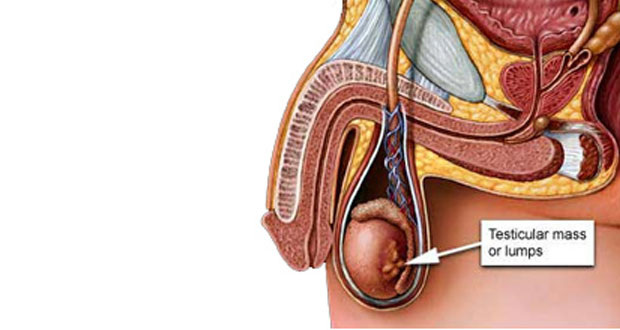Testicular cancer are uncommon but are most curable form of urologic cancer.
Testicular cancer develops in the testicles (testes). They produce male reproductive cells (sperm) and testosterone. Testicular cancer is treated successfully in more than 95% of cases. While testicular cancer is uncommon, it usually affects males who are young (age 20 to 40).
Signs and Symptoms
Testicular cancer does not always produce symptoms. A mass or lump in the testicle is usually the first sign of the disease. The mass may or may not be painful. Other symptoms include testicular swelling, hardness, and a feeling of heaviness or aching in the scrotum or lower abdomen.
Testicular cancer that has spread to other organs (metastasized) may cause low back pain, shortness of breath, chest pain, and cough.
Treatment
Treatment for testicular cancer depends on the stage of the disease. Some patients choose to store frozen sperm in a sperm bank before treatment to ensure fertility.
- Surgery or orchiectomy:
Radical inguinal orchiectomy is the surgical removal of the testicle and the spermatic cord through an incision in the groin. If CT scan indicates that testicular cancer has metastasized to the lymph nodes, retroperitoneal lymph node dissection is often performed. All of the lymph nodes connected to the affected testicle are removed in this procedure. Such dissection is usually done at a later date.
- Radiation:
Radiation uses high energy x-rays to destroy cancer cells. In testicular cancer, external beam radiation is primarily used after orchiectomy (called adjuvant therapy) to destroy cancer cells that have spread to lymph nodes.
- Chemotherapy:
Chemotherapy is a systemic cancer treatment that uses toxic drugs to destroy cancer cells. In testicular cancer cases, it is used to destroy cancer cells that remain after surgery.
Sperm banking may be needed before the start of Chemotherapy.
- Testicular prosthesis:
Testicular prosthesis can be considered after Orchidectomy for Cosmetic and psychological reasons.
 Urologist in Chennai | Robotic Urologist in India | Chennai Urology
Urologist in Chennai | Robotic Urologist in India | Chennai Urology

